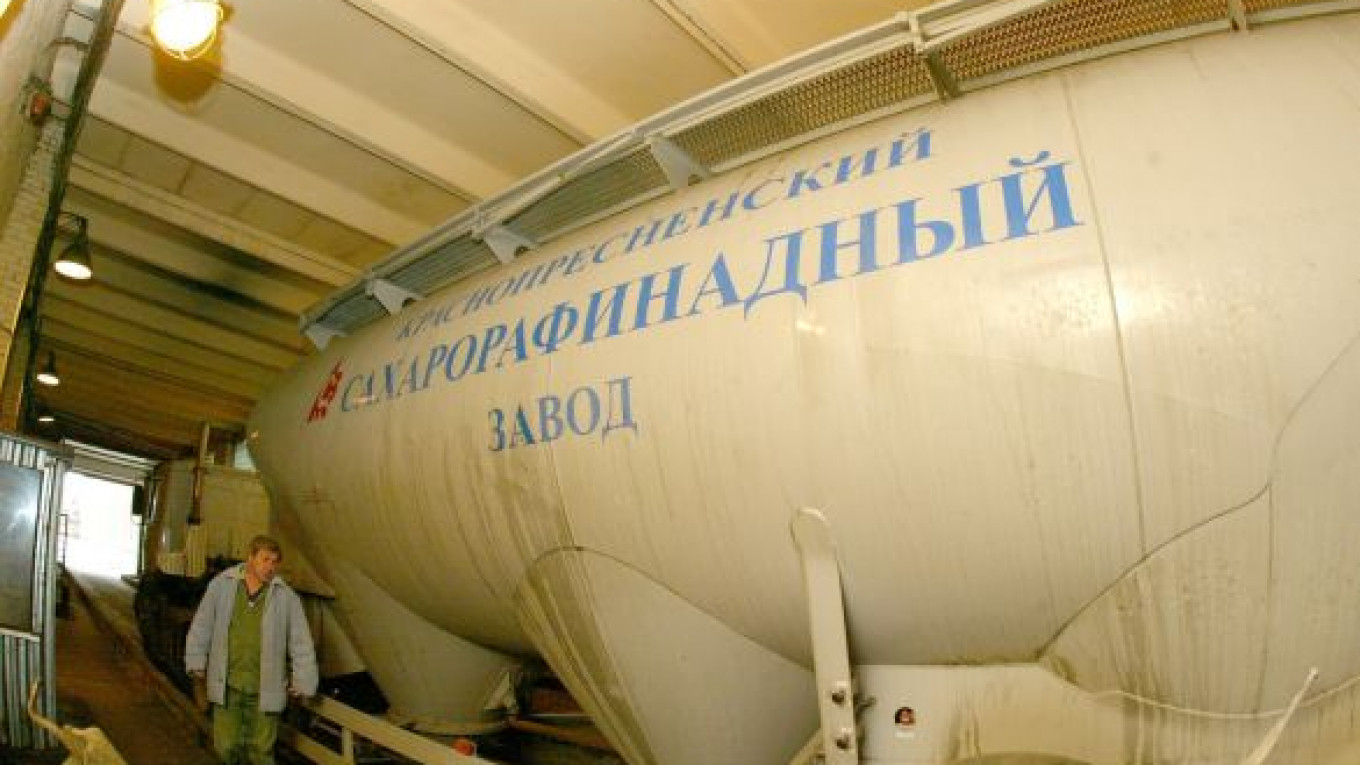Russia might take steps to protect its sugar producers from imports after it joins the World Trade Organization later this year.
The Eurasian Economic Commission, which is part of the Customs Union of Russia, Belarus and Kazakhstan, is considering such a move, according to statements made by Andrei Slepnyov, the trade minister for the organization, Bloomberg reported.
Initial steps in this direction were made when the customs union annulled traditionally low duties on sugar imports for the period from May 1 to July 31. Now duties on raw sugar imports will be the same throughout the year — $140 per metric ton, as opposed to the rate of $50 per metric ton for that period last year.
"This decision will allow sugar beet farmers to keep a positive attitude and maintain cultivated areas at the level of last year, as well as to stabilize the production of beet sugar and to strengthen our position as an exporting country," Russian Sugar Producers' Union chairman Andrei Bodin said, RBK reported.
Last year's crop yielded 5.03 million tons of sugar from sugar beets and 735,000 tons from raw sugar, with domestic consumption about 5.6 million tons per year. The bountiful harvest helped to facilitate export of 250,000 tons of sugar, according to the Institute for Agricultural Market Studies, or IKAR.
"It is unbelievable progress for [the Russian market]. It happened for the first time in the last 12 years," IKAR's expert Yevgeny Ivanov said. Russia for the first time exports sugar to European countries and Syria, he added.
Despite those high numbers, he did not predict greater expansion of sugar exports.
"Our maximum is 500,000 tons of sugar per year," Ivanov said. "Beet sugar cannot win in competition with cane sugar. Historically, beet sugar covers a small share of the market. But with our last year crop numbers, we take part in this small VIP club," he said.
But IKAR forecasts a reduction of cultivated areas in 2012.
"[Last year's harvest] shows that the sector is not ready for such [production] volumes — neither our government nor Russian Railways," he said.
About 10 percent of the sugar beet harvest was lost due to a lack of human resources, warehouse space and railway cars for transportation.
"The most recent sugar factory was built in 1983," Ivanov said. "As of now, we have 30 new factories [in the works], but only on paper," he added.
Sugar Producers' Union head Bodin is not so pessimistic.
"According to the Agriculture Ministry's three-year program, capacities of sugar-processing factories will increase 30 percent," Bodin told The Moscow Times. "A new sugar factory in the Tambov region will come on line in 2013," he added.
As of now, all rail carriers combined cannot provide even 10 railway cars per day for a sugar factory putting out 5,000 tons daily, so how are they going to provide more cars for a more powerful factory, IKAR's Ivanov said in a statement.
Increasing costs of delivery influence the final cost of the product, will affect consumer prices and may lead to local shortages in the regions located more than 1,000 kilometers from the sugar factories, Bodin said. On top of that, orders for railcars to transport sugar are not fulfilled on time or in the quantities needed, which, in turn, affect exports. For now, it is more practical for sugar producers to posses their own railway cars, he said.
A Message from The Moscow Times:
Dear readers,
We are facing unprecedented challenges. Russia's Prosecutor General's Office has designated The Moscow Times as an "undesirable" organization, criminalizing our work and putting our staff at risk of prosecution. This follows our earlier unjust labeling as a "foreign agent."
These actions are direct attempts to silence independent journalism in Russia. The authorities claim our work "discredits the decisions of the Russian leadership." We see things differently: we strive to provide accurate, unbiased reporting on Russia.
We, the journalists of The Moscow Times, refuse to be silenced. But to continue our work, we need your help.
Your support, no matter how small, makes a world of difference. If you can, please support us monthly starting from just $2. It's quick to set up, and every contribution makes a significant impact.
By supporting The Moscow Times, you're defending open, independent journalism in the face of repression. Thank you for standing with us.
Remind me later.






